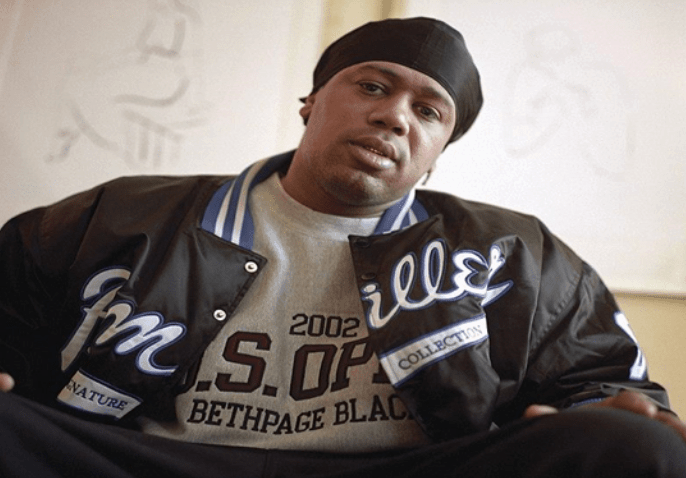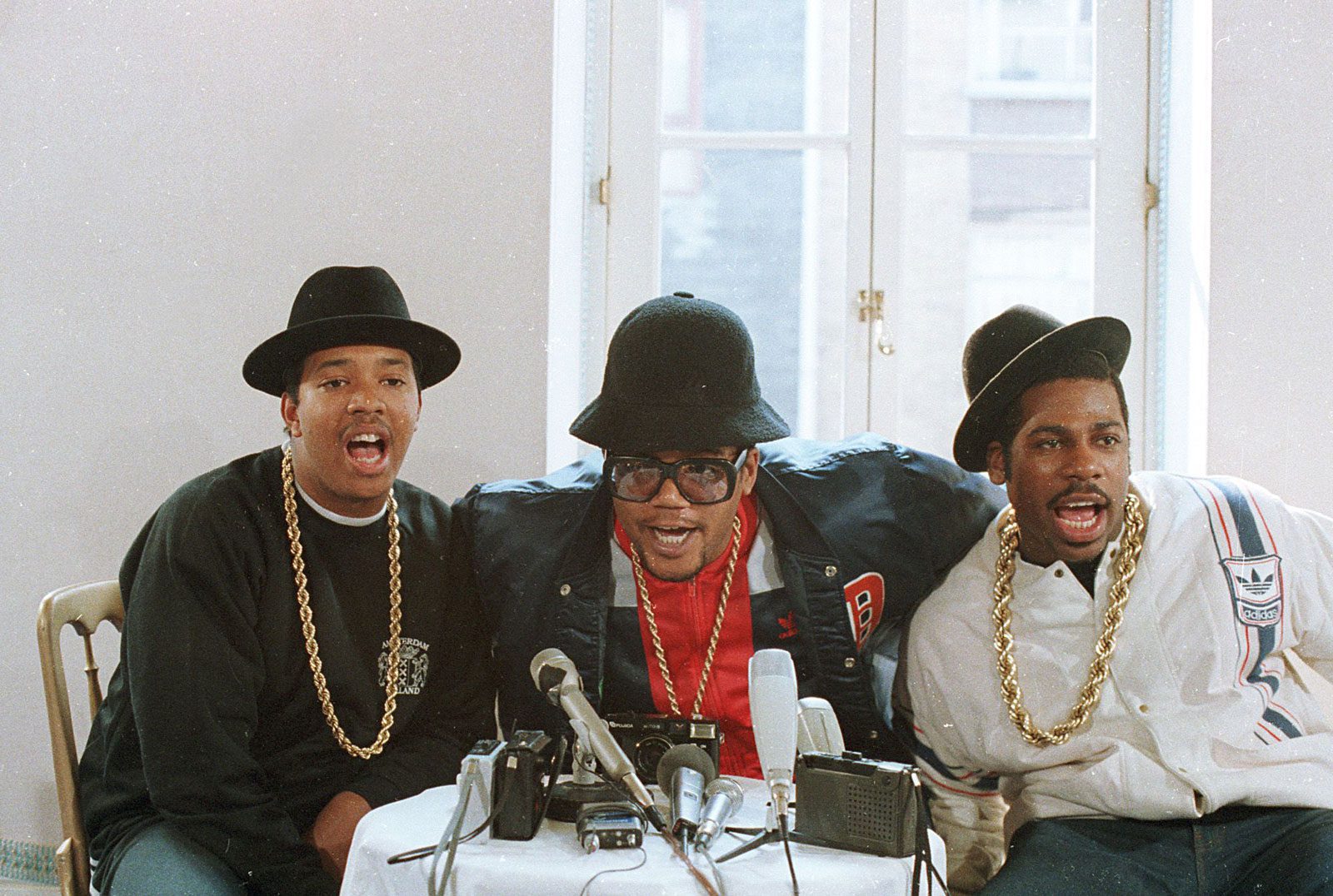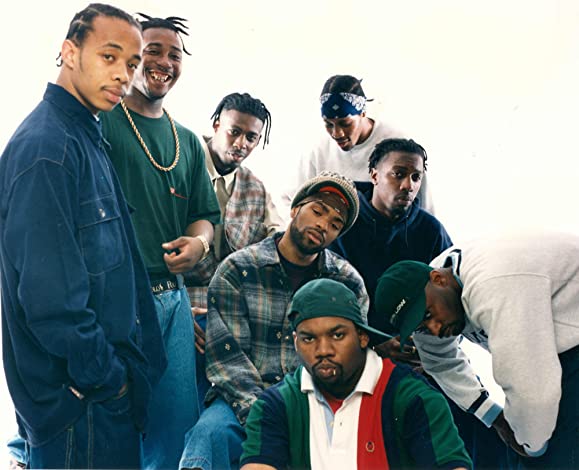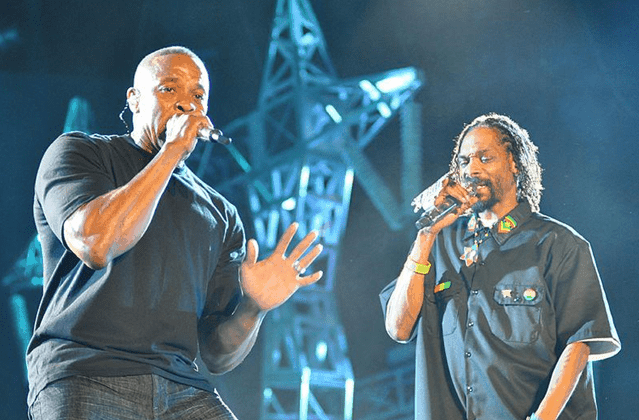Are you curious to know who the oldest rap group is? Look no further than Grandmaster Flash and the Furious Five. This American hip hop group was formed in the South Bronx of New York City in 1978, and their members included Grandmaster Flash, Melle Mel, Kidd Creole, Keef Cowboy, Scorpio, and Rahiem. They were the first rap group to be inducted into the Rock Hall, and they not only elevated hip-hop from party music to a weapon for social change, but also introduced new techniques and equipment that expanded the sound of hip-hop. Keep reading to learn more about the origins of rap and the pioneers who made it mainstream.

Uncovering the Longest-Running Rap Group in History.
Grandmaster Flash and the Furious Five is considered the oldest rap group in the music industry. The group was formed in the South Bronx of New York City in 1978 and consisted of six members, including Grandmaster Flash, Melle Mel, Kidd Creole, Keef Cowboy, Scorpio, and Rahiem. This group was the first rap group to be inducted into the Rock Hall, which is a testament to their significance in the hip-hop music scene.
Grandmaster Flash and the Furious Five were trailblazers in hip-hop music, elevating it from party music to a weapon for social change. They were known for their sonic innovations, which included using new techniques and equipment to expand the sound of hip-hop. Their music was not only entertaining but also had a message that resonated with the masses.
The group’s impact on hip-hop music cannot be overstated. They created a new sound that was unique and influential in shaping the direction of the genre. Grandmaster Flash and the Furious Five inspired countless artists that followed in their footsteps, and their legacy continues to live on today. They remain an essential part of the history of rap music and a reminder of the power of music to effect change.
>> Must read What is the number 1 rap album of all time?
Discovering the Origins of Hip-Hop’s Legendary Genre: The Birth of Rap.
Rap is a genre of music that was developed in the United States during the 1970s. It is a form of music that is characterized by its rhythmic and rhyming speech, accompanied by a beat. The question of who invented rap is a bit complicated, as it is not the product of a single person or group. However, there are certain individuals and groups who played a key role in the development of rap.
The early MCs and deejays who constituted rap’s old school were the major pioneers of rapping. Grandmaster Flash and the Furious Five, Kurtis Blow, and the Cold Crush Brothers are among the most significant of these pioneers. Grandmaster Caz of the Cold Crush Brothers is controversially considered by some to be the true author of some of the strongest lyrics in “Rapper’s Delight,” one of the first rap songs to achieve mainstream success.
These early MCs and deejays were known for their ability to improvise and create rhymes on the spot. They would often host parties and events where they would showcase their skills, and this led to the development of rap battles, where MCs would compete against each other in a battle of words.
In conclusion, while it is difficult to pinpoint the exact inventor of rap, it is clear that the early MCs and deejays played a crucial role in its development. They paved the way for future generations of rappers and helped to define the genre that we know today.
Trending now – Who is the king of rap of all time?
Discovering the Groundbreaking Origins of White Rappers.
MC Serch and Pete Nice, also known as 3rd Bass, are considered to be the pioneers of white rap. They made their debut in 1989, and were the first white rap act to gain recognition for their music without relying on gimmicks that played off their race.
Unlike previous white rappers, MC Serch and Pete Nice’s whiteness was not a defining factor in their music. Instead, they focused on creating quality rap music that resonated with audiences of all backgrounds. Their success paved the way for other white rappers to make a name for themselves in the industry.
It’s important to note that while MC Serch and Pete Nice were the first successful white rap act that didn’t rely on their race as a gimmick, they were not the first white rappers. Prior to their debut, white rappers such as the Beastie Boys and Vanilla Ice had gained popularity, but their music often relied on their whiteness as a selling point.
Overall, MC Serch and Pete Nice’s impact on the rap industry cannot be overstated. They proved that white rappers could be successful without relying on their race, and paved the way for future generations of white rappers to follow in their footsteps.

The Rise of Rap: The Influencers Behind Its Popularity.
Rap music, which started as a form of expression among African American youth on the streets of New York, gained immense popularity in the late 1970s. The year 1979 marked a turning point in the history of rap music as the Sugarhill Gang released their iconic hit “Rapper’s Delight”. The song, which was 14 minutes long, featured catchy beats and clever lyrics that quickly captured the attention of music lovers worldwide. The success of “Rapper’s Delight” proved that rap was not just a passing fad but a genre that had the potential to dominate the music industry.
The release of “Rapper’s Delight” marked the beginning of the commercialization of rap music. Record producers saw the potential of the genre and started investing in rap artists. The success of the Sugarhill Gang paved the way for other rap groups, including Grandmaster Flash and the Furious Five, Run-DMC, and Public Enemy, to gain recognition and become mainstream. These groups not only garnered a massive following but also influenced the development of rap music, making it a force to reckon with in the music industry.
In conclusion, the Sugarhill Gang’s hit “Rapper’s Delight” played a vital role in making rap music popular in the late 1970s. The song’s success paved the way for other rap groups to gain recognition and commercial success, leading to the development of rap as a genre that dominates the music industry today.
Discovering the Genesis of Rap Music: Unveiling the Father of the Genre.

Gilbert Scott-Heron, born in 1949, is widely regarded as the “father of rap.” He was an American singer, songwriter, poet, and author who rose to fame in the 1970s with his thought-provoking and politically charged music. His most famous song, “The Revolution Will Not Be Televised,” released in 1970, is still considered a timeless classic.
Scott-Heron’s music was a blend of jazz, soul, and spoken-word poetry, which he called “bluesology.” He used his unique style to address social and political issues, highlighting the struggles and injustices faced by African Americans. His lyrics were a mirror to the society, and he fearlessly spoke out against the establishment.
Apart from his music career, Scott-Heron was also a novelist, essayist, and a poet. His works are known for their social commentary and political activism. He was a vocal critic of the American government’s policies and the institutionalized racism that existed in the country.
Scott-Heron’s influence on the rap genre is immense, and he paved the way for future generations of rappers. His music and poetry continue to inspire and resonate with people all around the world. His legacy as the “father of rap” will always be remembered and celebrated.
The Origins of Rap: What Was Its Original Name?
Rap music is widely known as a genre of popular music that originated in New York City in the 1970s. However, it was not always called “rap.” In fact, rap was originally referred to as “emceeing” or “MCing.” The term “emcee” stands for “master of ceremonies,” which was a title given to the person who would introduce performers and keep the crowd engaged at parties and events.
As hip hop music began to evolve and gain popularity, the role of the emcee shifted to include the delivery of rhymes and verses over a beat. This new style of music quickly became known as “MCing” or “rapping.”
Interestingly, rap music was also known as “disco rap” in its early days. This is because it was often played at disco clubs and parties, as well as in block parties and other outdoor events. However, as rap music began to gain its own unique identity, it shed the “disco” label and became known simply as rap.
Today, rap music is a global phenomenon and has evolved into many sub-genres, such as gangsta rap, conscious rap, and trap music. Despite its evolution, the roots of rap music can still be traced back to the streets of New York City in the 1970s, where it was known as “emceeing” or “MCing.”
The Origins of Rap: Exploring its Founding Figures and Influences.
Rap, a genre of music that has taken over the world and influenced countless artists, originated in 1971 in the Bronx. Kool Herc, a Jamaican immigrant, is credited with founding rap. He is known for his innovative techniques of playing two turntables by hand and manipulating the sound to create an entirely new genre of music. Kool Herc’s early performances at block parties were a hit, and he quickly gained a following.
Kool Herc’s contribution to the founding of rap cannot be overstated. He is credited with creating the breakbeat, a technique where he isolated the instrumental break in a song and played it on repeat, while rapping over it. This technique became a hallmark of early rap music and is still used in the genre today.
Kool Herc’s impact on the genre of rap cannot be denied. His innovative techniques and unique sound quickly gained popularity, and he became a pioneer in the rap scene. He paved the way for countless artists who have since made their mark on the genre.
In conclusion, Kool Herc is widely recognized as the founder of rap. His early performances and innovative techniques helped to create an entirely new genre of music that has since taken the world by storm. His contributions to the genre are immeasurable, and his legacy continues to influence artists today.
Unveiling the Pioneer of Chart-Topping Rap Songs
The first rap song to reach the top spot on the Billboard Hot 100 was Vanilla Ice’s “Ice Ice Baby” on November 3, 1990. This achievement signaled the arrival of rap music into the mainstream and cemented its influence in popular culture. The song’s catchy beat, memorable lyrics, and Vanilla Ice’s unique delivery quickly propelled it to the top of the charts, where it remained for several weeks.
“Ice Ice Baby” was not only the first rap song to reach #1 on the Hot 100 chart but also became a cultural phenomenon. Its success opened doors for other rap artists to achieve mainstream success and helped to break down barriers in the music industry. The song’s popularity was undeniable, and it remains a classic hit to this day.
Vanilla Ice’s success with “Ice Ice Baby” paved the way for other rap artists to make their mark on the music industry. The song’s unique blend of rap and pop elements helped to popularize the genre and bring it to a wider audience. As a result, rap music has become a dominant force in the music industry, and its influence can be seen in many other genres of music.
In conclusion, “Ice Ice Baby” by Vanilla Ice was the first rap song to reach the top spot on the Billboard Hot 100 chart. Its success marked a turning point in the music industry and helped to bring rap music into the mainstream. The song’s popularity and lasting impact demonstrate the power of rap music and its ability to shape popular culture.
Pioneering the Hip Hop Industry: The First African American Rapper.
Kurtis Blow, born as Kurtis Walker in 1959, is widely recognized as the first black rapper to sign with a major label and become a mainstream star. His musical legacy is undeniable and his contributions to the rap industry are immeasurable. He turned 60 on August 9 and his groundbreaking achievements have paved the way for future generations of black rappers. Blow’s impact on the music industry can be seen in his numerous hit songs and his ability to blend rap with other genres such as funk and disco. He was a trailblazer in the rap industry, and his influence can still be felt in the music of today. His success as the first black rapper to become a mainstream star certainly opened the door for other black artists to follow in his footsteps and achieve success in the industry.
The Origins of the Term “Rap”: Uncovering its Naming History.
Rap music has come a long way since its inception in the Bronx, New York in the 1970s. Over the years, it has grown to become one of the most popular and influential music genres in the world. However, have you ever wondered who named this genre of music?
Well, for those who are familiar with rap music, it’s no secret that KRS-One of Boogie Down Productions is credited with coining the acronym Rhythmic American Poetry, which is what rap stands for. KRS-One is a legendary rapper, producer, and activist who has been in the industry for over three decades.
KRS-One’s contribution to the genre of music is undeniable, and his impact on the culture has been enormous. He is known for his thought-provoking lyrics and his ability to use rap music as a tool for education and social change.
It is important to note that while KRS-One is credited with coining the term Rhythmic American Poetry, he did not necessarily invent the genre of music. Rap music has its roots in African American and Latino communities in the Bronx, and it was created as a form of expression and a way to tell stories about life in the inner city.
In conclusion, KRS-One’s contribution to the rap music genre cannot be overstated. His creativity, passion, and dedication to the art form have helped to shape the genre into what it is today. He may not have invented rap, but he has certainly left an indelible mark on it.
The origins of rap music can be traced back to the South Bronx of New York City in the late 1970s, and Grandmaster Flash and the Furious Five were the pioneers of the genre. They elevated hip-hop from party music to a powerful tool for social change, and their innovative techniques and equipment expanded the sound of hip-hop. Today, rap music remains one of the most popular genres in the world, and its impact on music and culture cannot be denied. As we continue to enjoy and appreciate the music, let us not forget the trailblazers who paved the way for the artists we love today.



